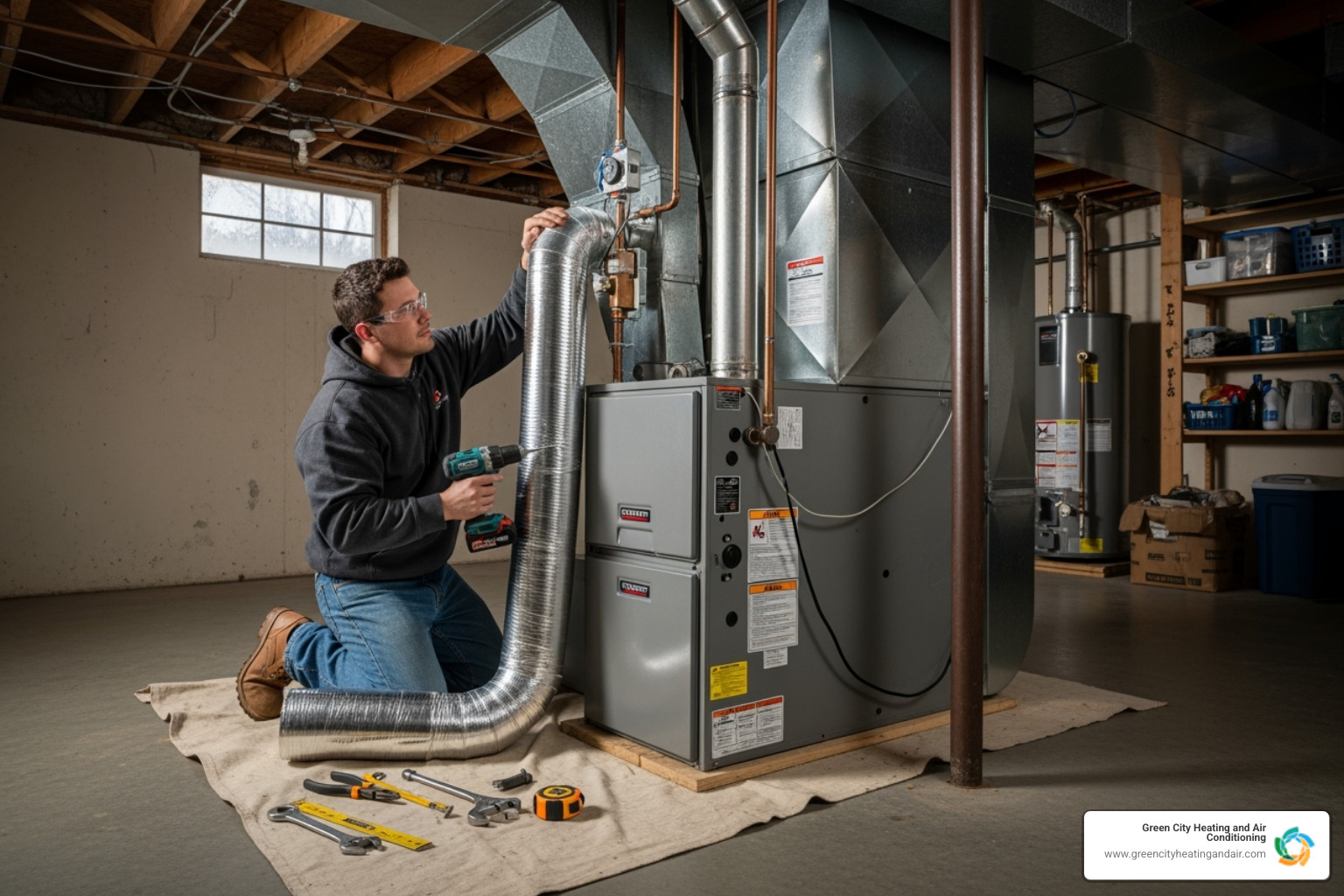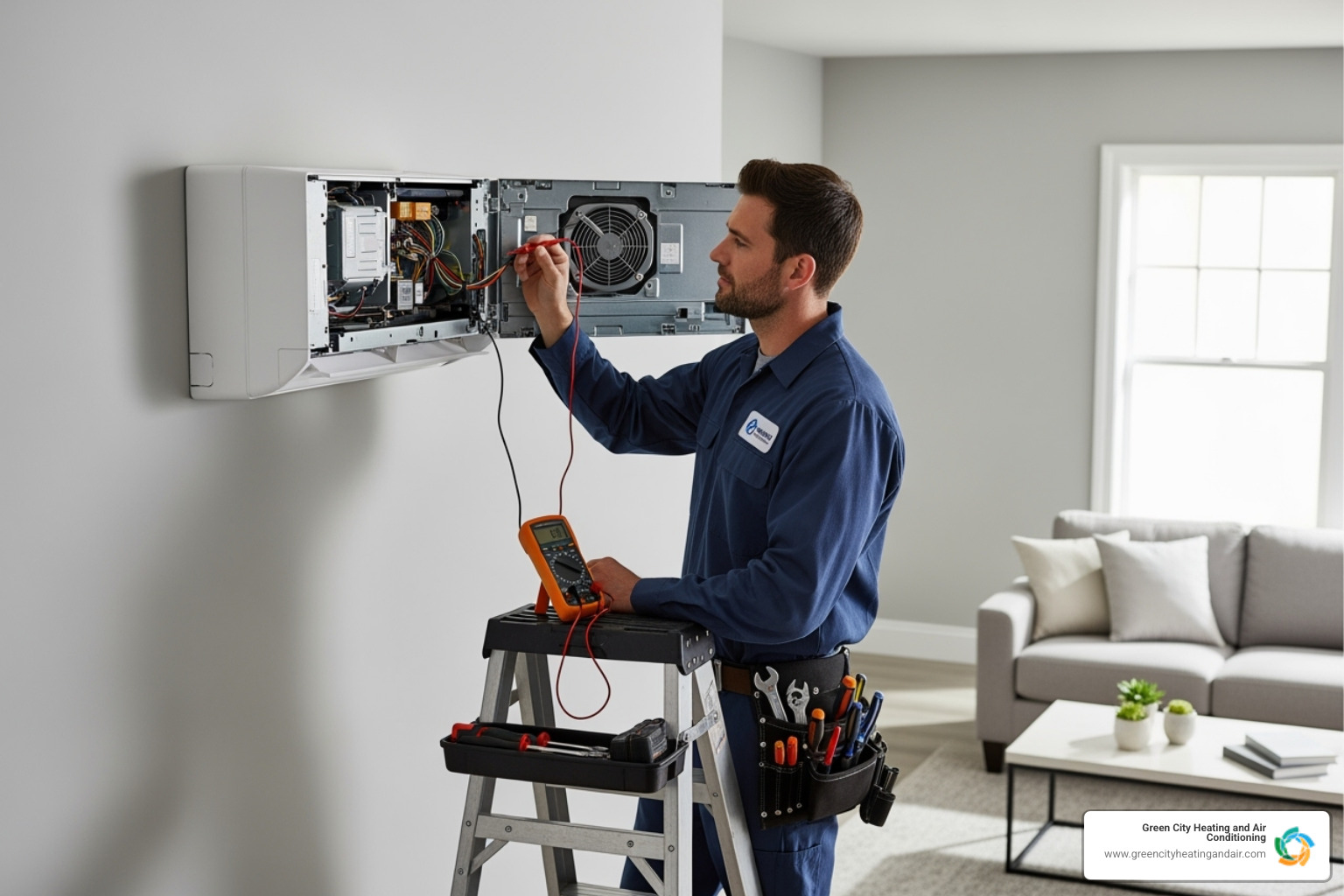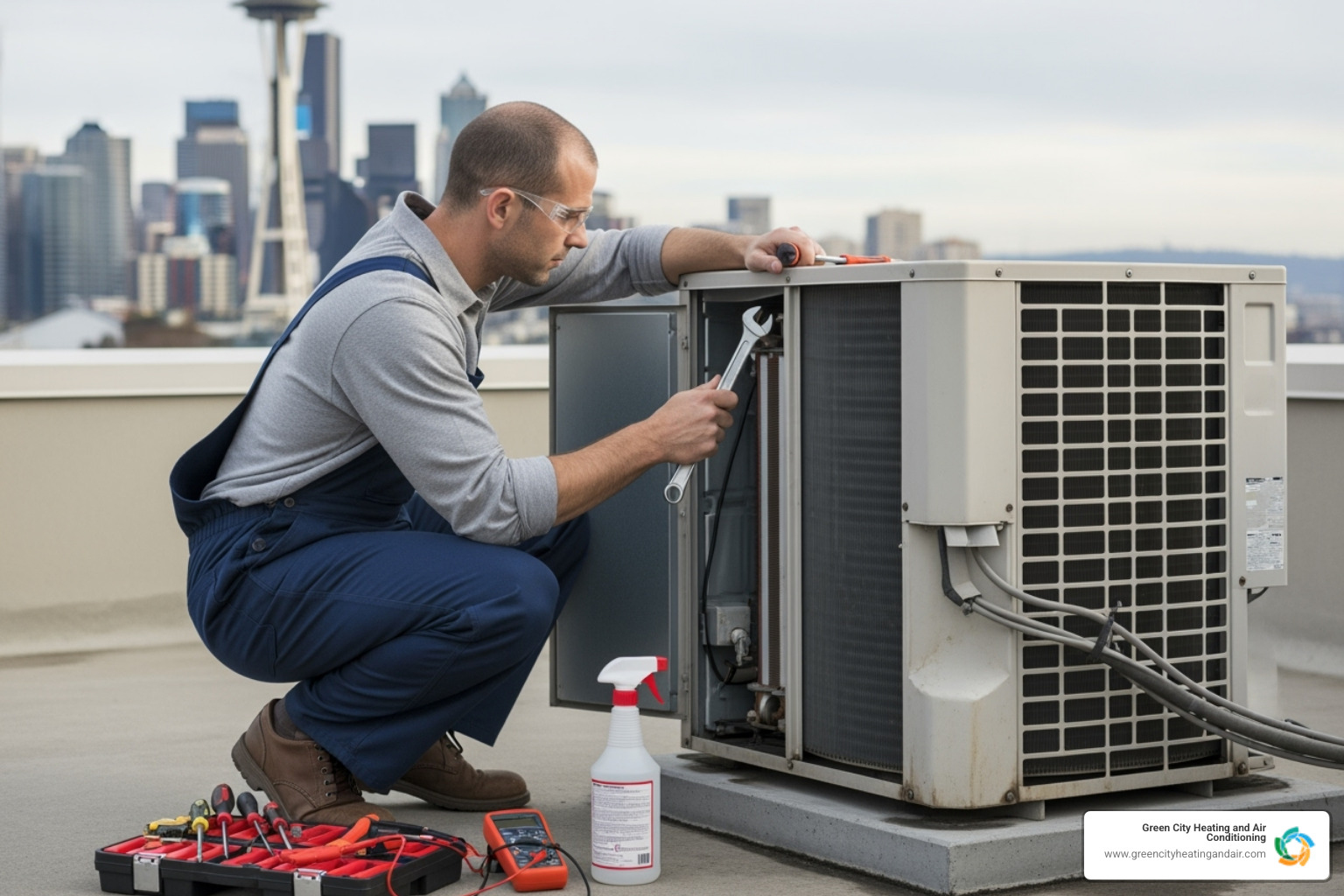Mini ductless AC systems are a common choice for homes in Clyde Hill, especially during the warmer summer months when cooling systems are running day and night. These systems are designed to offer efficiency and flexibility, but when something goes wrong, even a small issue can interrupt comfort. One part that may not get much attention until problems show up is the flame sensor.
Although it's easy to focus on loud noises or weak airflow when diagnosing AC issues, problems tied to the flame sensor can be more subtle but just as disruptive. A faulty flame sensor can lead to the system shutting down more often than expected or failing to operate consistently. Knowing what the flame sensor does and why it matters to your mini ductless AC in Clyde Hill can help prevent larger, costly issues later on.
Understanding the Role of a Flame Sensor in a Mini Ductless AC System
The flame sensor in an AC system is a small part with a big job. Its main purpose is to detect whether a flame is present after your system initiates the ignition process. While most people associate flame sensors more closely with heating, certain features in mini ductless AC systems, especially models that include heat pump capabilities, rely on this sensor to monitor safe operation during heating cycles.
When functioning properly, the flame sensor ensures that if no flame is detected, the system will shut down quickly to prevent gas from continuing to flow. This safety feature protects the home from the risks of burning fuel without ignition. It is one of the key safeguards built into the system to protect both people and property.
What often goes unnoticed is that the flame sensor must be clean and correctly aligned to do its job. Even a little bit of dust, oxidation, or a misaligned sensor can prevent it from working correctly. In those situations, the system can misinterpret what is happening and trigger a shutdown unnecessarily, leaving you without temperature control when you need it most.
Common Symptoms of a Faulty Flame Sensor
It is not always obvious when the flame sensor is the reason your system is not working properly. The signs can mimic other common AC problems, which makes it hard to pinpoint without a closer inspection. Here are some noticeable signs Clyde Hill homeowners might come across if this sensor starts to fail:
- The system starts but shuts off shortly after
- The heating cycle in a combo unit does not complete or restarts frequently
- A flashing error code appears on the unit
- The system blows room-temperature air instead of cooled or warmed air
- Power cycling happens more than usual without changes in settings
While one issue on its own may not confirm a flame sensor problem, seeing two or more together makes it more likely. For example, a Clyde Hill homeowner recently noticed their mini ductless AC would power on, begin cycling, and then turn off within a minute, even though the room never reached the right temperature. After a technician inspection, it turned out the flame sensor was covered in residue and could not detect the ignition properly.
These kinds of situations can be frustrating, especially during peak use. That is why recognizing these early signs and acting on them without delay is important to maintaining a comfortable home.
Causes of Flame Sensor Issues in Mini Ductless AC Units
Flame sensors are small parts, but they handle a tough job in your mini ductless AC system. Over time, a few common conditions can make them stop working as they should. Understanding the causes behind these failures can help you respond more quickly when things seem off.
The most frequent issue is buildup. Flame sensors are exposed to heat and combustion gases. Even a light layer of carbon or dirt can block the sensor from detecting the flame. That buildup leads the system to think the burner did not light, even when it did. When this happens repeatedly, the AC may shut off before it ever kicks into full operation.
Other causes include:
- Corrosion from moisture in the air or leaks nearby
- Sensors becoming loose or misaligned from vibration or after minor maintenance
- Cracks in the ceramic housing due to heat stress
- Aging components that no longer conduct properly
Clyde Hill’s coastal air can introduce higher humidity levels, especially in summer. That added moisture can create corrosion on electronic connections or cause sensors to degrade quicker than expected. Faulty sensors might come and go at first, but eventually, they will fail completely. When that happens, the entire heating cycle, if your ductless unit includes one, is cut short.
It is also worth paying attention to the unit’s history. If it has not been cleaned in over a year or was recently worked on and has not run right since, those context clues add up. It could be as simple as realignment or as complex as full sensor replacement. Either way, having it inspected right away helps stop the guesswork before it turns into a longer outage.
How Our Technicians Handle Flame Sensor Repairs
When a flame sensor issue shows up in a mini ductless AC system, it needs a specific approach. Our technicians begin with a visual inspection of the sensor. If it is covered in buildup or obvious corrosion, cleaning is often the first step. Special tools and gentle abrasives are used during this process to avoid damaging the sensor’s surface.
After cleaning, the technician tests the sensor’s position, wiring, and readings. If the sensor passes initial checks but the problem comes back within days, that usually points to a deeper issue. In some cases, replacement is the safer option. Once that decision is made, our technicians choose the correct model and match it to the existing controls within your unit.
Here is a simplified look at what a typical repair process involves:
1. Shut off power and open the system panel
2. Inspect the flame sensor and nearby connectors
3. Clean the sensor using a soft abrasive pad or replace it if needed
4. Reconnect the sensor and verify alignment to the burner
5. Restart the system and monitor the flame signal during startup
Trying to perform these tasks without experience may seem doable but can result in damaging sensitive parts or misdiagnosing the issue. Flame sensors tie into gas operation and ignition, which are both areas where improper handling can create safety risks. Getting the job done by someone trained in mini ductless AC systems guarantees the repair gets completed safely and correctly the first time.
Simple Maintenance Tips to Keep Flame Sensors Working
Preventing future flame sensor problems does not take much, but it does require consistency. Keeping your mini ductless AC in good shape year-round begins with paying attention to seasonal checks and overall cleanliness. Here are some easy ways to avoid sensor-related shutdowns:
- Clean the area around the indoor and outdoor units regularly
- Keep vents free of blockages and check airflow after any furniture changes
- Schedule a check-up from our professionals at least once a year
- Ask for a sensor inspection during general AC maintenance visits
- Stay alert for short cycling or delayed starts as a possible warning
One overlooked reason sensors fail is vibration from a poorly installed or aging unit. If the system vibrates too much over time, small parts can get loose, including the flame sensor. Catching this early reduces the risk of part damage and unplanned repair costs.
Most AC system owners in Clyde Hill do not think about the flame sensor until something goes wrong. With regular upkeep and a few preventative steps in place, this hidden component can keep doing its job while the system runs smoothly.
Ensuring Continued Comfort in Your Clyde Hill Home
Flame sensor issues in mini ductless AC systems are not always easy to spot. But once these problems take hold, they can quickly lead to discomfort and unnecessary downtime, especially when it is hot outside and you are depending on your system to keep things cool. Recognizing sensor-related signs and having a clear fix path in place helps reduce outages and supports long-term reliability.
If you live in Clyde Hill and use a mini ductless AC system, taking care of your flame sensor is an easy way to avoid bigger cooling failures down the road. With professional care and some basic maintenance habits, you can keep this part and the whole system running like it should. Addressing the sensor early keeps your home cooler, your energy use steady, and your system dependable.
Green City Heating and Air Conditioning understands that even a small sensor issue can cause significant discomfort in your home. If you have concerns about your mini ductless AC in Clyde Hill, our technicians are ready to provide the expert service needed to keep your system running reliably. For a quick estimate or to book a service visit, please contact us today.
More Blogs
Latest
insights and tips

Warmth Unleashed: The Ultimate Seattle Furnace Installation Handbook

Emergency Ductless AC Repair in Bellevue: Get Your Cool Back Fast










